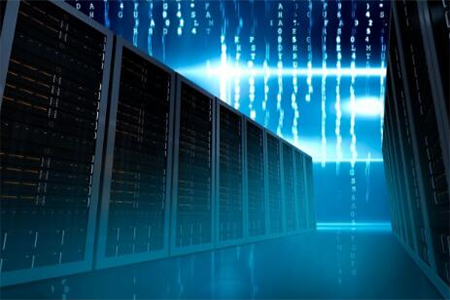The hard disk is a key component of the server for storing data. It not only affects the access speed of the data, but also affects the stability and availability of the server. When choosing the right hard drive for your server in Singapore, you need to weigh several factors such as performance, reliability, and capacity. This article will explore the various factors in choosing server hard drives in Singapore to help you make an informed decision.
1. Hard drive type
First, you need to select the hard drive type. Currently, there are two main types of hard drives available:
a. Traditional mechanical hard disk (HDD)
Traditional mechanical hard drives use rotating magnetic disks to store data. They are generally cheaper than SSDs, but are slower because they need to wait for the heads to move into the correct position before they can read the data. Traditional HDDs are suitable for applications that require large-capacity storage but do not require high-speed access, such as data backup servers.
b. Solid state drive (SSD)
SSDs use flash memory to store data and have no moving parts, making them faster and more reliable. SSDs are generally faster than HDDs, making them suitable for applications that require high performance, such as web servers, database servers, and virtual machine hosts. While SSDs are more expensive, prices are gradually coming down, making them more attractive.
2. Capacity
Capacity is one of the key factors in hard drive selection. You need to ensure that the hard drive capacity is large enough to meet your data storage needs. When selecting capacity, consider the following factors:
Data volume: Assess the amount of data you need to store. Consider current needs as well as future expansion needs.
Data type: Different types of data require different storage space. Image, audio and video files generally take up more space.
Backup requirements: If you need to back up data regularly, make sure the hard drive capacity is sufficient to store the backup.
When selecting hard drive capacity, it is recommended to select slightly more capacity than current needs so that there is sufficient space for growth and backup.
3. Performance
Hard drive performance is crucial to the overall performance of the server. Here are some key aspects of hard drive performance:
a. Reading and writing speed
The read and write speed of the hard disk affects the speed of data access. SSDs generally have faster read and write speeds than HDDs, which can speed up the reading and writing of data.
b. IOPS (input/output operations per second)
IOPS represents the number of read and write operations that a hard disk can perform per second. High IOPS usually correlates with better performance. For applications that require fast data access, such as database servers, high IOPS is very important.
c. Delay
Hard disk latency represents the time required to access data. Lower latency usually means faster response times. SSDs generally have lower latency, making them suitable for applications with high response time requirements.
d. Random read and write performance
The random read and write performance of a hard disk represents the performance when accessing data randomly. For multi-user or multi-tasking applications, a hard drive with good random read and write performance is crucial.

4. Reliability
Hard drive reliability is crucial to the stability of server operation and data security. The following are key factors in ensuring hard drive reliability:
a. Lifespan
The life of a hard drive refers to its expected service life. SSDs generally have a longer lifespan, but they are still limited. You need to consider replacing your hard drive regularly to reduce the risk of hard drive failure.
b. RAID (Redundant Array of Disks)
Using RAID technology can improve the reliability of the hard drive. RAID provides redundancy by distributing data across multiple hard drives to protect against a single hard drive failure. Different levels of RAID provide different levels of reliability and performance.
c. Cloud-based backup
Regular backup of data is a key measure to ensure data security. Backing up data to cloud storage provides additional redundancy and data recovery options.
5. Cost
Finally, you need to consider the cost of the hard drive. Different types of hard drives vary greatly in price. HDDs are generally cheaper, but have poorer performance. SSDs are generally more expensive but offer better performance. You need to choose a drive based on your budget and performance needs.
6. Configuration suggestions
Ultimately, choosing the best configuration of hard drives depends on your specific needs. Here are some recommended configurations for different use cases:
Web servers and application servers: For servers that require high performance and responsiveness, SSD is recommended. Capacity depends on needs, but it's best to choose an SSD of at least 256GB.
Data backup server: If you need to store backup data in large capacity, HDD may be a suitable choice. You can choose a high-capacity HDD, such as 4TB or larger.
Database server: Database servers usually require high-performance hard drives, so SSD is the first choice. In this use case, a RAID configuration can provide additional redundancy.
Virtual machine host: Virtual machine host requires fast read and write speeds and high IOPS, so SSD is the best choice. Capacity should be scaled based on the number and size of virtual machines.
in conclusion
Choosing a suitable hard drive for a Singapore server requires careful consideration of multiple factors such as performance, reliability, capacity and cost. Different use cases and requirements may require different types and configurations of hard drives. Before making a decision, make sure you understand your needs and choose the best drive type and configuration based on those needs. The choice of hard drive has an important impact on both server performance and data security, so choose carefully.

 EN
EN
 CN
CN








